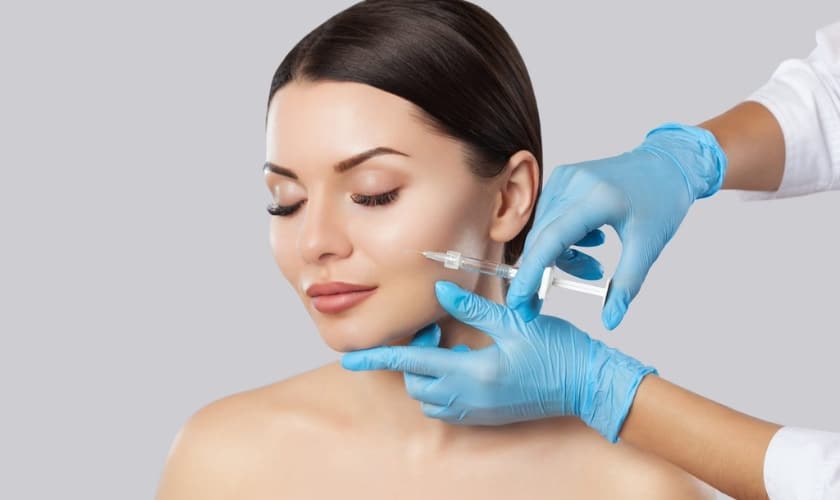When considering cosmetic treatments, you may wonder about the differences between Juvederm and Botox. Both are popular choices for facial enhancement, but they serve different purposes. Understanding these differences can help you choose the right option for your skin goals. In this blog, we will explore Juvederm vs. Botox in detail, their benefits, and how to decide which treatment aligns with your aesthetic desires.
What is Juvederm?
Juvederm is a dermal filler made from hyaluronic acid. This substance is naturally found in the body and helps maintain skin moisture and elasticity. Here are some key points about Juvederm:
- Volume Restoration: Juvederm adds volume to areas like the cheeks and lips, enhancing contours.
- Smooth Wrinkles: It fills in fine lines and deeper wrinkles, especially around the mouth and nose.
- Natural-Looking Results: The treatment creates a smooth, natural appearance, making it hard to tell that any work has been done.
- Long-Lasting Effects: Depending on the specific product used, results can last from six months to over a year.
What is Botox?
Botox is a neuromodulator that temporarily relaxes facial muscles. It works by blocking nerve signals and preventing muscle contractions. Here are some important aspects of Botox:
- Wrinkle Reduction: Botox is effective for dynamic wrinkles caused by muscle movement, such as crow’s feet and forehead lines.
- Quick Treatment: The procedure is fast and can be done in a short office visit, often taking less than 30 minutes.
- Temporary Effects: Results typically last three to six months, requiring regular touch-ups to maintain the effects.
- Prevention: Many use Botox preventively to reduce the formation of new wrinkles.
Juvederm vs. Botox: Choosing the Right Treatment
Juvederm and Botox are both very popular choices for cosmetic dermatology treatments. Choosing between them depends on your specific skin goals. Here are some factors to consider:
- Type of Wrinkles: If you’re targeting static wrinkles (those visible when the face is at rest), Juvederm may be the better option. Botox is more effective for dynamic wrinkles (visible during facial movements).
- Desired Results: Consider whether you want to enhance volume, such as in the lips or cheeks, or smooth out wrinkles.
- Longevity of Results: Juvederm tends to last longer than Botox. If you prefer a longer duration between treatments, Juvederm might be ideal.
- Treatment Areas: Juvederm is typically used for the cheeks, lips, and nasolabial folds. Botox is primarily for the forehead, around the eyes, and the upper lip area.
Consulting a Professional
Before deciding between Juvederm and Botox, it’s essential to consult with a qualified professional. Here’s what to keep in mind during your consultation:
- Discuss Your Goals: Share your specific skin goals with the practitioner. They can recommend the best option based on your needs.
- Ask Questions: Inquire about the products used, treatment duration, and potential side effects. Understanding these aspects will help you make an informed decision.
- Consider Combination Treatments: Many people find that a combination of Juvederm and Botox offers the best results, addressing both volume loss and wrinkle formation.
Aftercare and Maintenance
After receiving Juvederm or Botox, follow your practitioner’s aftercare instructions. Here are some general tips:
- Avoid Touching the Area: This helps prevent complications and ensures the filler or botulinum toxin settles correctly.
- Stay Upright: For the first few hours, avoid lying down to minimize the risk of shifting the treatment.
- Limit Physical Activity: Refrain from strenuous exercise for the first 24 hours to reduce swelling and bruising.
Especially after Botox treatment, you need to exercise extra caution for the best result.
Your Journey to Beautiful Skin
Choosing between Juvederm and Botox can seem daunting, but understanding your skin goals makes it easier. Both treatments offer unique benefits and can complement each other. If you’re considering facial enhancements, evaluate your specific needs and preferences. Discussing options with a qualified practitioner will provide guidance tailored to you.
In the battle of Juvederm vs. Botox, there isn’t a one-size-fits-all answer. Both can enhance your appearance and boost your confidence when used correctly. Take the first step toward your beauty goals by scheduling a consultation today!
Frequently Asked Questions
1. What are the main differences between Juvederm and Botox?
Juvederm is a dermal filler used to add volume and smooth out wrinkles, while Botox is a neuromodulator that relaxes facial muscles to reduce dynamic wrinkles. Essentially, Juvederm fills areas that lack volume, while Botox prevents the muscles that cause wrinkles from contracting.
2. How long do the results from Juvederm and Botox last?
Juvederm results can last from six months to over a year, depending on the area treated and the specific product used. Botox typically lasts three to six months, with effects gradually fading as the muscle activity returns. Regular touch-ups are necessary to maintain results.
3. Are there any side effects associated with Juvederm and Botox?
Yes, both treatments can have side effects. Common side effects of Juvederm include swelling, bruising, and redness at the injection site. Botox may cause headaches, droopy eyelids, or minor bruising. Most side effects are temporary and resolve within a few days.
4. Can Juvederm and Botox be used together?
Absolutely! Many people benefit from using both treatments in combination. Juvederm can address volume loss and static wrinkles, while Botox effectively smooths dynamic wrinkles. A customized treatment plan can help achieve a balanced and youthful appearance.
5. How do I prepare for Juvederm or Botox treatments?
Preparation typically involves avoiding blood thinners (like aspirin or ibuprofen) a few days before your appointment to minimize bruising. Staying hydrated and informing your practitioner about any allergies or medications you take is also important for a safe experience.

